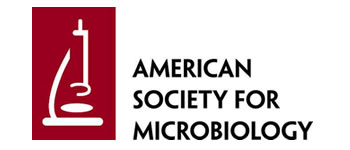Biology Scholars Teaching with Data: Quantitative Skills for Microbiology Students
Biology Scholars Teaching with Data Program
The Grand Challenge
In 2012 the President’s Council of Advisors on Science and Technology (PCAST) Engage to Excel report identified an impending shortfall of 1 million undergraduates in Science, Technology, Engineering and Mathematics (STEM) fields over the next 10 years. This gap in the technically trained workforce will make it difficult for the United States to maintain world preeminence in STEM fields. The report points out that retaining 50% of entering college students who have an interest in STEM so that they graduate in STEM would be the easiest way to close this talent gap. A scientifically trained workforce begins with engaging introductory science courses and the opportunity for students to learn about science by participating in aspects of its practice. Another report, Vision and Change in Undergraduate Education: A Call to Action (2010), highlights the critical role of quantitative reasoning in modern biological practice. The report states that all biology students should be able to apply quantitative skills to solve biological problems, and should be able to utilize models and computational tools to understand complex biological systems.
ASM and QUBES Biology Scholars Teaching with Data (BSTD) Program
The ASM Biology Scholars Teaching with Data (ASM BSTD) is partnering with the Quantitative Undergraduate Biology Education and Synthesis (QUBES) project to promote the use of strategies that engage students in authentic scientific practices through meaningful interactions with real data. The ASM/QUBES BSTD Program seeks faculty interested in providing students with opportunities to practice science by asking questions, investigating problems, and analyzing data to construct new knowledge. The BSTD program combines hands-on, in person, intensive training with a robust learning and mentoring community to support faculty implementation of evidence based pedagogical approaches to achieve quantitative reasoning learning outcomes. This professional development experience takes advantage of the QUBES Faculty Mentoring Network (FMN) model, which extends and supports community interactions after the in person workshop in an online environment. Two Faculty Mentoring Networks (FMNs) focusing on using data to engage students in authentic scientific practices are launching in summer 2016 (Course Based Undergraduate Research cohort and Quantitative Skills for Microbiology Students cohort ). These FMNs will run through Fall 2016 or Spring 2017 as the BSTD participants implement new practices in their classroom.
Benefits of participating in BSTD
Participation in the Program provides the following benefits:
- Mentored opportunity to explore effective teaching methods to improve classroom learning using data
- Access to experts, innovative teachers and mentors in the microbial sciences
- Interactions with colleagues interested in developing quantitative skills across the microbial sciences
- Recognition as an ASM/QUBES Biology Scholar Teaching with Data
The BSTD experience provides more than a 2-day workshop due to the hybrid nature of the QUBES/Biology Scholar model. The greatest benefit of the BSTD is being nurtured by and belonging to a community that collectively strives to teach science as it is practiced and to help students become adept at using data in discovery. Participants benefit from onsite and online learning as well as a robust community for mentoring and sharing. Once accepted into the program, participants are asked to actively engage in conversations and collaborations with their cohort prior to and after the in person workshop in Boston or North Bethesda. After the workshop, participants are engaged in activities that provide structure, mentoring and guidance to succeed in changing or exploring new teaching methods. To take full advantage of this program, the ASM and QUBES seek individuals who are able to commit to the full BSTD experience.
For more information about the full range of ASM Biology Scholars Programs visit http://www.facultyprograms.org/index.php/biology-scholars-hybrid-courses.
Sponsors and Credentials
BSTD is co-sponsored by ASM, and Quantitative Undergraduate Biology Education and Synthesis (QUBES), a national consortium dedicated to improving learning opportunities for all students enrolled in undergraduate biology courses by reflecting the centrality of quantitative approaches in modern biology.
This material is based upon work supported by the National Science Foundation under DBI 1346584, DUE 1446269, DUE 1446258, and DUE 1446284. Any opinions, findings, and conclusions or recommendations expressed in this material are those of the author(s) and do not necessarily reflect the views of the National Science Foundation.
BSTD is modeled after an ASM sponsored initiative, Biology Scholars Program. Since 2005, the ASM has supported 270 biologists in evidenced-based teaching and learning and a dozen professional societies committed to undergraduate biology education reform. The 2011 report, Vision and Change in Undergraduate Biology Education: A Call to Action cited the ASM Biology Scholars Program as a model for faculty development (page 54).
